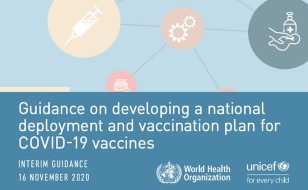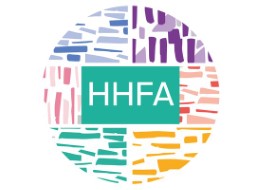Introducing Mental Health and Psychosocial Support (MHPSS) in emergencies
This is an online orientation course to strengthen the competencies of health sector actors working in emergencies to establish, support and scale up Mental Health and Psychosocial Support (MHPSS) in countries. The focus of this course is on how to apply existing practical, evidence-based, scalable tools and practice-led approaches for successful implementation of projects to strengthen MHPSS in emergencies operations, protection from mental health and psychosocial consequences of crises and towards the realization of universal mental health coverage.
Through this training, the participants will learn about key approaches to advocacy and to identify entry points for mental health and psychosocial integration as an integral and cross-cutting component in public health emergency responses and in humanitarian emergencies. The training will also emphasize a focus on early recovery, highlighting WHO’s past successes in building back better.
Please note that modules 4 and 11 are under construction. As soon as they are published, an email will be sent to you so that you can access them.
Photo credit: WHO/Fahmy Hanna – MHPSS awareness campaign, Libya.
The course is available in:
Polski – Українська – Spanish
Course contents
Module 1: Overview on Mental Health and Psychosocial Support (MHPSS): definition, guidelines and principles:
By the end of this module, you should be able to: define MHPSS; describe the 9 key actions on mental health from the Sphere Handbook; explain the importance of MHPSS in emergencies.
Module 2: Coordinating a team with other sectors / clusters providing Mental Health and Psychosocial Support (MHPSS):
By the end of this module, you should be able to: explain the rationale for MHPSS Coordination; describe where MHPSS fits, including in Public Health Emergencies; outline the Core Functions of MHPSS Coordination; review the rationale for Monitoring and Evaluation of MHPSS activities; describe the IASC Common Monitoring and Evaluation Framework and explain how the IASC Common Monitoring and Evaluation Framework can be used.
Module 3: Assessing Mental Health and Psychosocial Support (MHPSS) needs and resources to guide programming:
By the end of this module, you should be able to: describe why MHPSS assessments are needed; list the key considerations for planning MHPSS assessments and have knowledge of key WHO and IASC MHPSS assessment tools.
Module 4: Working with community members, including marginalised people, to strengthen community self-help and social support:
Please note that this module is under construction. As soon as it is published, an email will be sent to you so that you can access it.
Module 5: Including basic psychosocial support skills in an emergency response or programme:
By the end of this module, you should be able to: describe what basic psychosocial skills are; describe what psychological first aid is and is not; explain who is likely
to need psychological first aid and when; describe the action principles of psychological first aid; explain who may need more support than psychological first aid can offer; and describe how psychological first aid and training in basic psychosocial support skills can be included as part of an emergency response and programme.
Module 6: Developing and implementing a plan for mental health integration into general health care in humanitarian settings:
By the end of this module, you should be able to: identify the need of integrating mental health into general health care in humanitarian settings; explain the priority mental, neurological and substance use (MNS) conditions covered in mhGAP-HIG; be familiar with how to work using the mhGAP-HIG manual and mhGAP operations manual; and explain key operational considerations for integration of mental health in general health care in humanitarian settings.
Module 7: Identifying suitable tools and integrating psychological interventions into health and social sector implementation plans in emergencies:
By the end of this module, you should be able to: understand scalable psychological interventions and why they are important; describe the key aspects of psychological intervention program design and implementation; list key WHO psychological interventions and where they could fit within a stepped care model and describe what you need to consider when adapting psychological interventions for different modes of delivery.
Module 8: Assessing psychiatric hospitals and residential homes and supporting people with severe mental health conditions:
By the end of this module, you should be able to: describe why it is important to focus on psychiatric hospitals and residential homes in emergencies; list key actions for assessments and for protecting and supporting persons in psychiatric hospitals and residential homes; and have knowledge of key WHO and IASC MHPSS guidance and tools.
Module 9: Assessment of needs and integrating interventions for the management of conditions related to substance use:
By the end of this module, you should be able to introduce the tool for rapid assessment of alcohol and other substance use in humanitarian settings; orient participants in screening and brief interventions for alcohol/drug use in humanitarian settings; and to improve knowledge on recognizing and management of acute and emergency conditions (overdose and alcohol withdrawal) related to substance use in humanitarian settings.
Module 10: Engaging multiple stakeholders to build back better sustainable mental health care following emergencies:
By the end of this module, you should be able to: understand how to contribute to long term mental health systems strengthening during and after each emergency and gain insights from WHO’s experience in building back better.
Module 11: Mental Health and Psychosocial Support (MHPSS) during COVID-19:
Please note that this module is under construction. As soon as it is published, an email will be sent to you so that you can access it.
Extra module: Mental Health and Psychosocial Support (MHPSS) before, during and after radiological and nuclear emergencies:
By the end of this module, you should be able to: describe how radiological and nuclear emergencies carry substantial and unique stressors; explain how they impact the mental health and psychosocial well-being of those affected; and describe the recommended key actions and considerations to address MHPSS before, during and after radiological and nuclear emergencies.
Extra Module: Monitoring and Evaluation of Mental Health and Psychosocial Support (MHPSS) in emergency settings:
By the end of this module, you should be able to: explain monitoring and evaluation (M&E) and the rationale for MHPSS M&E; describe the history of the IASC common monitoring and evaluation framework; outline the key M&E terms in the framework; describe the IASC common M&E framework for MHPSS; explain the practical steps for using the IASC common M&E framework, and highlight key tools and resources for MHPSS M&E.
User Reviews
Be the first to review “Introducing Mental Health and Psychosocial Support (MHPSS) in emergencies”
You must be logged in to post a review.








There are no reviews yet.